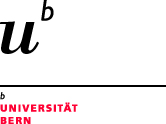
Courses with downloadable Materials
Modern English Grammar 1 and 2Lecture: Language Shaped Realities
BA Seminar: Introducing Cognitive Linguistics
Creative Writing Workshop
Archived Podcasts and Videos
Personal Page
Downloads Home
Downloads
BA Seminar: Introduction to Cognitive Linguistics
Spring Semester 2021
Under construction
This seminar will unfortunately also have to be done as an online course. The Zoom link for the classes is https://unibe-ch.zoom.us/j/93023139306We will start at 10:30 and go on till 12:00.
Documents to be checked out:
- How to do better Powerpoint presentations
Other introductory sources to be checked out:
- Evans, Vyvyan and Melanie Green (2006): Cognitive Linguistics: An introduction, Edinburgh: Edinburgh University Press
- Geeraerts, Dirk. ed. (2006): Cognitive Linguistics: Basic readings, Berlin: Mouton de Gruyter.
| Week | Themes and activities | Files
for Download - and to read before the
session! |
Additional
material |
14 |
Meaning ConstructionConstructing meaning in and through larger "chunk" of language (in discourse) |
Chapter 11: Meaning Construction Key terms accessible in a Google Doc The Presentation (to be uploaded after the session) |
The Presetation by Rachael, Laura, Cristina and Afsheen |
13 |
Cognitive Semantics:Two alternative (traditional) models |
Chapter 11 has had to be shifted once more so it will be the focus of next week's session. In this session we will explore some alternatives to the approaches discussed so far. There is another downloadable worksheet
|
For more detailed information, especially on the notion of truth condition and the metalanguage, here is Chapter 13: Cognitive Semantics in Context |
12 |
Cognitive Semantics:The Story So Far Part 1Please note that we may start a little later than at 10:30 because the zoom lecture podcast rendering may be a bit slow. |
In this session, because
the session on Chapter 11 has been shifted to next week, we will be
exploring some practical aspects of what the last few sessions have
dealt with. These will be the basis of a workshop session in groups.
|
|
11 |
Cognitive Semantics:
|
Chapter 9: Metaphor and Metonymy |
Interactive Glossary for Metaphor and Mentonymy Presentation
|
10 |
Cognitice Semantics:Categorisation |
Chapter 8: Categorisation |
Interactive Glossary for Categorisation Presentation |
9 |
Cognitive Semantics:
|
Chapter 6: Embodiment
Chapter 7: Encylopaedic View |
Interactive Glossary for Embodiment Interactive Glossary for Encyclopaedic View Details about the 30-minute Presentations
|
8 |
Cognitive Semantics: a general approach
|
ReadEvans and Green (2006) Chapter 5 What is Cognitive Semantics?Post your questions by Monday evening to this GoogleDoc |
Handouts
|
7 |
Grammar and Cognitive Linguisticswith Mini-Presentations ! |
ReadEvans and Green (2006), Chapter 14 |
Some practical exercises to check your understanding. Please also check your emails about the Mini Presentations in this session Mini(?)-Presentations of today
|
6 |
Word classes and Morphology |
Material for the discussion
Group Explorations |
Reading for next sessionEvans and Green (2006), Chapter 14 |
5 |
Categorisations and "prototypes"
|
Material for the discussion
|
The Geeraerts Paper in full Note: This is interesting but a little theoretical and not necessarils for the fainthearted :-) |
4 |
Categorisations of NounsGender and Beyond |
Please readDeutscher (2011): Sex and Syntax (It sounds rather click-bait-y, sorry...)And dip into Crisma et al (2011) The point of Bantu, Chinese and Romance nominal classification with special attention to "Bantu" Important: You will be expected to give an account of noun categorisation in different languages, so look out for other sources |
|
3 |
Approaches to Cognitive LinguisticsGetting a more profound unterstanding of what Cognitive Linguistics means |
Please have a look at Evans and Green (2006): The nature of cognitive linguistics: Assumptions and Commitments New: Worksheet with activities related to the re ading |
Key Concepts to be presented in the session are (as listed below) Questions on the Reading Groups from last week
|
2 |
Approaches to using Cognitive Linguistics |
Please carefully read Evans and Green (2006): What does it mean to know a language And prepare a short statement to each of these three questions (Geeraerts 2006): (where we left off...): 1.
What is
actually cognitive about Cognitive Linguistics? 2.
What are
arguments for and against including Chomskyan syntactic analysis in Cognitive
Linguistics? 3. Can you give your own illustrations of or examples for the four “characteristics of meaning” in Cognitive Linguistics? And an extra question: Can you give your own examples of "embodied experience"? (see Evans and Green) |
New:Link to the Google Documenton Evans and Green for Session 2: Questions on the Reading See also below (material from last week). |
1 |
Introduction
|
Before the first session next week, make sure you have read Geeraerts D. (2006): Introduction : A rough guide to Cognitive Linguistics. Sections 1, 2.5 and 4 carefully ; the remaining sections and subsections are interesting but not as central to the first session. On Wednesday 24 February you will be able to download either of these files: |
What It Means to "Know a Language" |